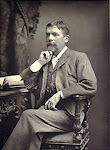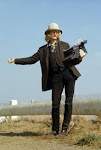
I read thousands of pages this year.
I was exposed to the true meaning of the term chivalry, and discovered in context what it meant in the Medieval period. I read pages of books that were written by a scribe, because the true author couldn't read or write.
My impression of Aristotle's Nicomachean Ethics developed from important ancient text to an expression of human nature that is still relevant today, and I learned that Aristotle's two ethical works were never meant to be read, but instead listened to in an ancient philosophy lecture. The word for lecture in Greek, by the way, means "a listening".
Victorian literature was daunting, but I have realized that it is the literature corpus of an era that was afraid of a new century, a new science, a changing human nature, and new morals.
Richard Brautigan is still crazy- that didn't change. But I do still love him.
William Faulkner's The Sound and the Fury is the most intimidating, morally challenging, and most beautiful book ever written. I learned how to maneuver around stream-of-consciousness and experienced the sadness of a family in ruins.
It's not "I think, therefore I am", it's "I doubt therefore I am".
I approached Kant, and respectfully backed away. But not before I wrote an essay on Pure Mathematics. After all, he said that there are those, "for which the present Prolegomena is not written".
I doubted whether I am the same person every instant of my life thanks to multiple modern metaphysicians.
Leibniz's account of metaphysics made the most sense. The material world doesn't exist.
My only A+ essay was on Huckleberry Finn and Emerson's Self Reliance. The funny thing is, Mark Twain said that anyone attempting to take a message out of Huckleberry Finn will be shot. Well, that's a problem.








No comments:
Post a Comment